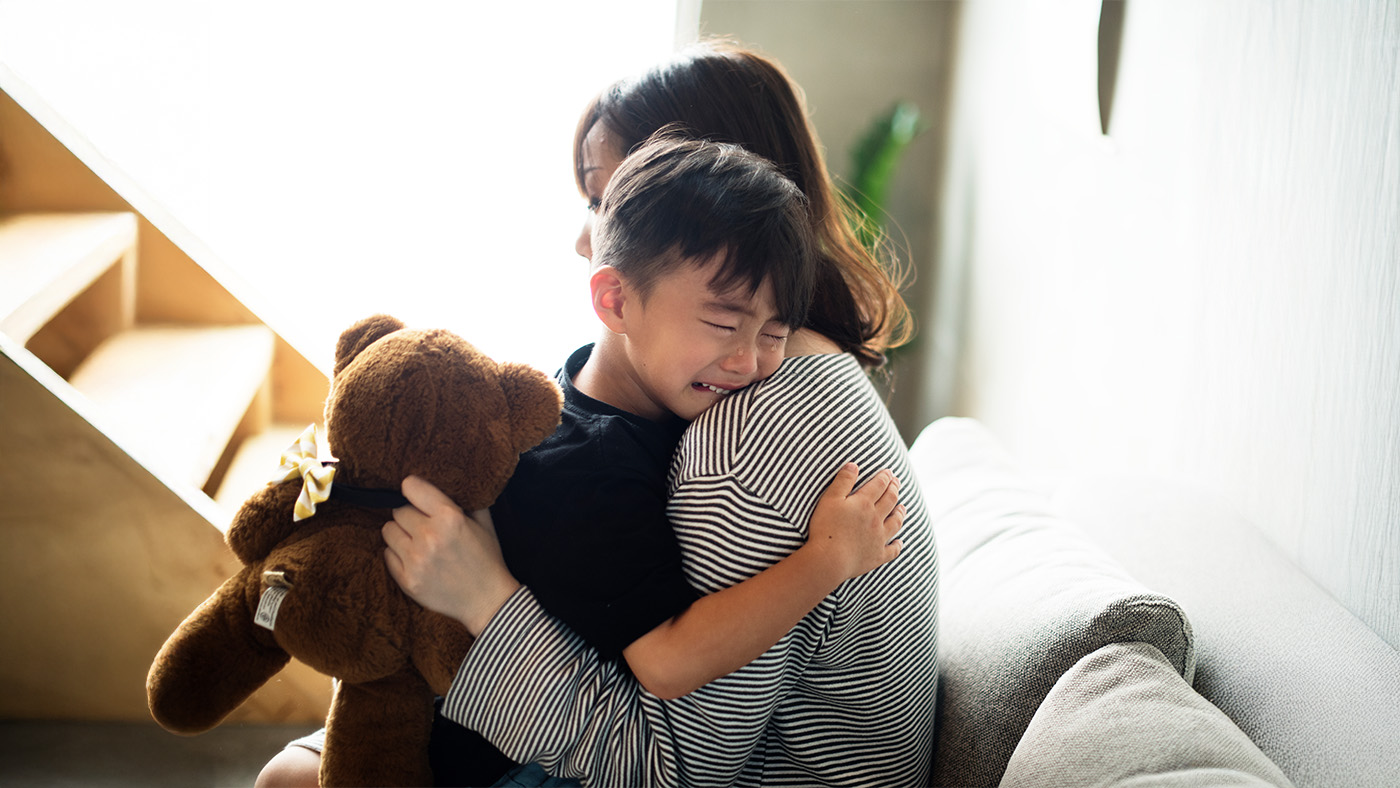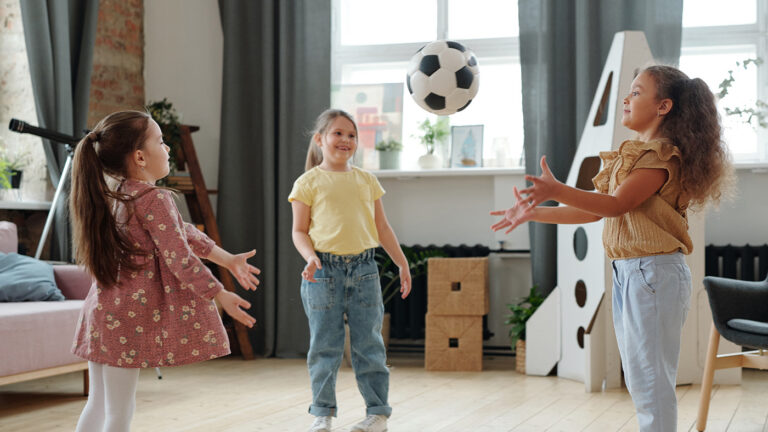Some days as a parent, it feels like you’re living with a very small, passionate, strong-willed storm cloud. One minute, your child is happily building a block tower, and the next, they’re on the floor in tears because you dared to breathe too close to it. Emotional ups and downs are a normal part of childhood, but helping kids learn how to regulate those big feelings can make everyday life smoother for everyone.
Every child is different, and there’s no one-size-fits-all solution. Factors contributing to emotional dysregulation can be based on natural temperament, genetics, environmental factors, and even intermittent factors such as being overtired or hungry. Even adults have trouble managing their emotions when they’re running on empty. Managing emotions is a valuable skill for kids to learn. The good news is that with practice, kids can learn to embrace their emotions in healthy and constructive ways.
What Emotional Regulation and Dysregulation Look Like in Children
Emotional self-regulation relies on a wide range of skills, including attention, planning, cognitive development, language skills, and more. Each of those skills may develop at its own pace, influencing when and how well your child manages their feelings. If your child has trouble managing their emotions, they aren’t “naughty” or “bad,” they just need to develop a new set of emotional skills.
Emotional self-regulation is when a child (or adult) is able to manage their feelings independently and behave in socially appropriate ways, even during stressful situations. Kids who can self-regulate are able to resist emotional meltdowns, manage frustration, and calm down when they get upset. Emotionally regulated kids can consider another person’s point of view, take turns, wait patiently, pay attention, stay on task, solve problems, and more. After learning these skills, your child will be better equipped to handle stress, make well-informed decisions, stick to plans, and adapt to and overcome challenges.
Emotional dysregulation can look like shouting and stomping feet, but it can also be quiet, with kids closing themselves off from loved ones. When stressed or overstimulated, some kids may explode instantly, while others may build up their emotions more slowly before letting their frustrations come to the surface. No matter how long it takes for your child to express themselves, these outbursts mean your child is struggling to manage big feelings.
Everyday Habits to Help Your Child Manage Their Feelings
Kids need a safe environment in which to explore their feelings (both positive and negative) without fear. The first step in helping them to regulate their feelings is to create an environment where they feel heard and acknowledged without judgment. Here are some helpful daily habits to get you started!
Talk About Emotions Early On
Kids who frequently throw tantrums and are difficult to soothe may be at increased risk of emotional dysregulation. If they don’t learn to manage their feelings during childhood, it can result in impulsive behavior as they get older.
Talk with your child about feelings when they are young. Read books, watch movies, and point out real-life examples to illustrate different emotions such as anger, frustration, happiness, or fear. Doing these exercises when your child is young can help them recognize those emotions in themselves.
Don’t Avoid Hard Situations
As a loving parent, you may be tempted to jump to the rescue when your child is in distress. While this comforts your child in the moment, it may teach them to outsource emotional regulation to you when they should be learning to manage their own feelings.
Avoid telling your child to “get over it” or “stop crying,” as these phrases teach children to suppress or hide their emotions. This can make your child uncomfortable with expressing their feelings, leading to further emotional dysregulation. The goal is to face big feelings head-on, even when they are uncomfortable.
Break Big Things Into Smaller Tasks
It’s easy to get overwhelmed by big jobs, especially if you’re a tiny person. Parents can help by teaching kids to break big tasks into smaller, more manageable jobs. By tackling these small tasks one step at a time, kids learn they can do big things. It’s a win-win in building confidence while managing emotions at the same time.
Encourage Your Child to Take a Breath
A large part of emotional self-regulation is learning to recognize big feelings as they start and before they pile up. Encourage your child to pause and really examine what they are feeling. Ask them questions like where the feeling exists in their body or how it makes them want to react. If your child can learn to recognize those feelings, they can learn to hold them in check and make a healthier choice.
Emotional dysregulation is an outsized emotional response to a stressful situation. Taking a breath and slowing down teaches kids to handle those situations without a meltdown. As your child gets older, you can also try other mindfulness or grounding techniques, like meditation, to help your child manage their feelings.
Adjust Your Expectations
The world is unpredictable, and there are a lot of factors that are beyond our control. Even when we do everything right, sometimes things don’t go our way. Learning to adjust our expectations is an important life skill, not just during childhood but throughout your child’s entire life.
Practice accepting roadblocks or delays and adjusting expectations, while staying focused on the outcome you want. This goes for parents too; it may take longer than you expect for your child to master emotional regulation, and you might have to adjust your expectations along the way. Don’t expect your child to figure it all out overnight.
Model Emotional Self-regulation
Kids learn by paying attention and mimicking the people around them. As your child’s first and most important teacher, one of the most effective things you can do is demonstrate emotional self-regulation yourself.
Stay calm when your child throws a tantrum or has a breakdown. Take a breath, walk away if you need to, and calm your own emotions before you respond. Emotions can be contagious. If you show kids how to handle frustration calmly, they’ll be more likely to do it themselves.
Give Them a Second Chance
We don’t always get it right the first time, so why not try a do-over? If your child has a meltdown, give them some time to cool off and then talk through what happened. Brainstorm ideas for healthy ways to react to similar situations in the future. You can even role-play, with you and your child alternating roles. Allowing your child to try again can help diffuse tension and give them practice for next time.
Provide Positive Reinforcement
When parents react to tantrums with anger, it reinforces the idea that aggression gets results. Instead of punishing your child for perceived bad behavior, remember that emotional dysregulation is a skill issue that needs support, practice, and praise.
Look for “positive opposites” or opportunities to encourage positive behaviors. For example, if your child has trouble turning off video games at bedtime, don’t punish them when it happens; instead, praise and reward them when they do.
When to Get Help with Childhood Emotional Dysregulation
Learning to regulate their emotions independently is a process that takes some time for kids to master. It’s normal for young children to have emotional meltdowns and throw temper tantrums, but those usually go away on their own before Kindergarten. Frequent tantrums in kids older than five years old might suggest that your child or teen needs some help learning strategies and managing their feelings so they can self-regulate in the future.
Get everyone in your child’s life on the same page. Kids need consistency, especially when building new habits. Talk with grandparents, daycare providers, teachers, and any other caregivers your child has. Make sure everyone is being consistent so your child can develop new healthy habits without confusion.
If you’re not seeing emotional progress as your child gets older, you might need to get some outside help. The team at Families First Pediatrics includes mental health professionals trained and ready to help guide you and your family through the tough times and the good times.
Sources:
Harvard, Child Mind Institute, American Psychological Association, Greater Boston Behavioral Health




